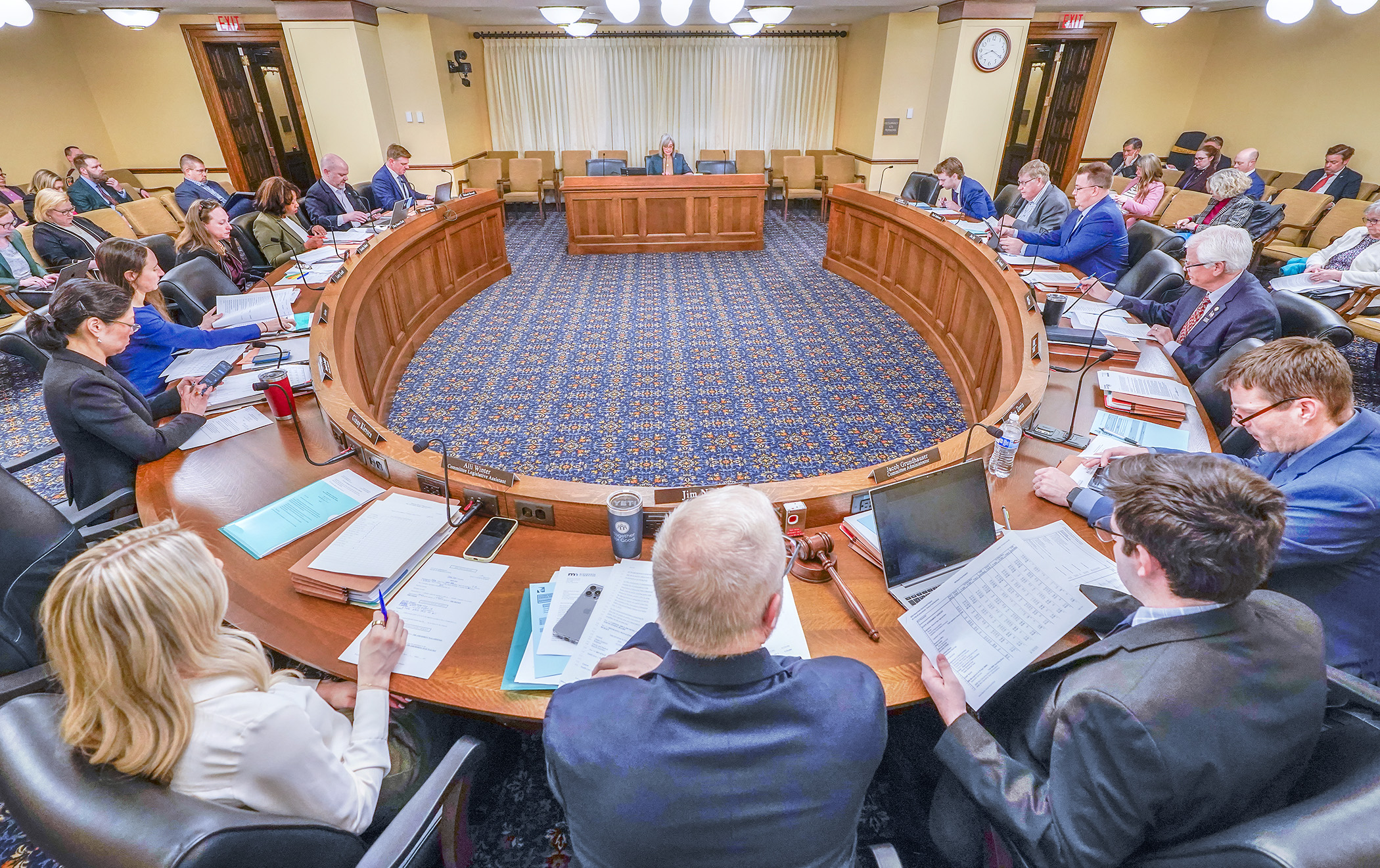$45 million increase proposed in state government spending bill

The omnibus state government finance bill contains $1.35 billion in spending for the 2026-27 biennium, a $45 million increase over February’s forecast base.
“It is a balance between the requests of the administration and the requests of the public,” said Rep. Ginny Klevorn (DFL-Plymouth), who co-chairs the House State Government Finance and Policy Committee with Rep. Jim Nash (R-Waconia).
Added Nash: “In a perfect world we’d like to do everything we can, but I feel from my perspective we did. … We still have the ability to change before we get here on Thursday.” That is when a committee vote is expected.
Tuesday’s committee meeting was a walkthrough of a delete-all amendment to HF2783 and the sharing of public testimony.
[MORE: View summary and detailed fiscal tracking sheet, change items]
Among the proposed increases are operating adjustments of $13.92 million for the House, $4.6 million for the Senate, and almost $3.96 million for the Legislative Coordinating Commission.
And $579,000 would be for a special review unit within the Office of the Legislative Auditor. The same amount would be for an annual report showing if identified recommendations by the office during the prior five years in a financial audit, program evaluation, or special review have been implemented.
Most state agencies and departments are slated to get a small operating increase, often to maintain current levels of service. Although Minnesota Management and Budget would get $2.35 million for a new Healthy Aging Subcabinet, the Office of the Attorney General would receive $782,000 to expand Medicaid Fraud Division staffing by nine people (federal funds are expected to cover 75% of the positions), and the LGBTQIA2S+ Council would get an additional $200,000 to increase staff.
Commissioner Erin Campbell questions adding a subcabinet when Minnesota Management and Budget’s proposed biennial operating adjustment is about $1.7 million below what was requested and other needs are not being addressed in the bill, namely $2.75 million for enhanced oversight capacity as requested by the governor.
In a letter, Campbell suggested some rebalancing may be in order.
“For example, the FY2026 operating adjustment proposed for the House of Representatives represents a 22% increase over base funding while MMB is set to receive just 1% and reductions are proposed for the Department of Administration and Minnesota IT Services.”
Acknowledging the state’s budgetary situation equates to difficult decisions, Brandon Hirsch, director of government relations for MNIT, provided examples of what reduced funding could mean.
“Reduced capacity to support some of the cybersecurity coordination efforts that we play across local government, Minnesota Geospatial Office’s ability to provide access to the most current statewide data for use by both public and private sector partners … and MNIT may have less capacity to continue advancing the transformative leadership goal of the Technology Advisory Council.”
In addition to dollars for more investigators, the bill includes provisions to help the Office of the Attorney General fight Medicaid fraud, including authorization to issue subpoenas for certain wage, insurance, and financial information when there is an ongoing law enforcement investigation. It would also replace the existing crime of Medical Assistance fraud with a new offense that carries a maximum 20-year imprisonment sentence and $100,000 fine.
Other notable provisions would:
- because the House now has 67 members from each party, increase the number of leadership positions from five to six that can receive up to 140% of the member compensation;
- extend by 18 months the availability of $5 million to implement the updated Capitol Mall Design Framework;
- modify standards for required education and experience for certified public accountants, and establish mobility for licensed public accountants;
- define "responsible lottery official” for purposes of the lottery’s retailer eligibility criteria and contract conditions;
- extend by one year the due date and funding for a University of Minnesota geophysical study and hazard assessment of the St. Anthony Falls area and cutoff wall in Minneapolis;
- require Minnesota Management and Budget to report to the Legislature three times in the 2026-27 biennium the number of posted executive branch job openings that have gone unfilled for at least six months;
- integrate application information and a referral process for the transit assistance program into the MNbenefits web portal;
- allow the Department of Administration to accept private funds to replace one of Minnesota’s two statues in the U.S. Capitol;
- establish a process for challenging and removing fraudulent business filings filed with the secretary of state’s office; and
- prohibit deceptive business mailings, such as creating an impression the solicitation is an official government notice or document.
***
The following are selected bills that have been incorporated in part or in whole into the omnibus state government finance bill:
Related Articles
Search Session Daily
Advanced Search OptionsPriority Dailies
Ways and Means Committee OKs House budget resolution
By Mike Cook Total net General Fund expenditures in the 2026-27 biennium will not exceed a hair less than $66.62 billion.
That is the budget resolution approved Tuesday by the House Ways...
Total net General Fund expenditures in the 2026-27 biennium will not exceed a hair less than $66.62 billion.
That is the budget resolution approved Tuesday by the House Ways...
Minnesota's budget outlook worsens in both near, long term
By Rob Hubbard It looks as if those calling for less state spending could get their wish, judging from Thursday’s release of the February 2025 Budget and Economic Forecast.
A state su...
It looks as if those calling for less state spending could get their wish, judging from Thursday’s release of the February 2025 Budget and Economic Forecast.
A state su...